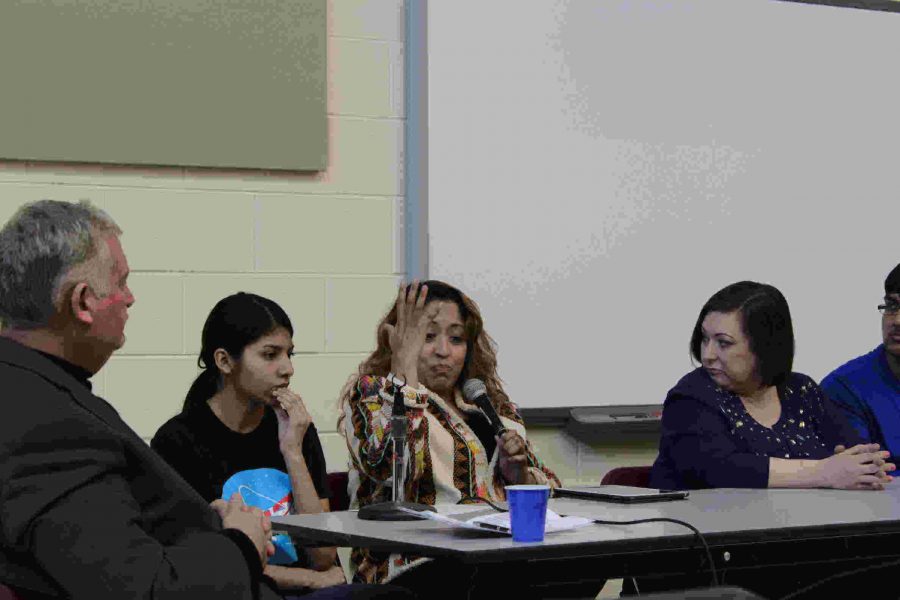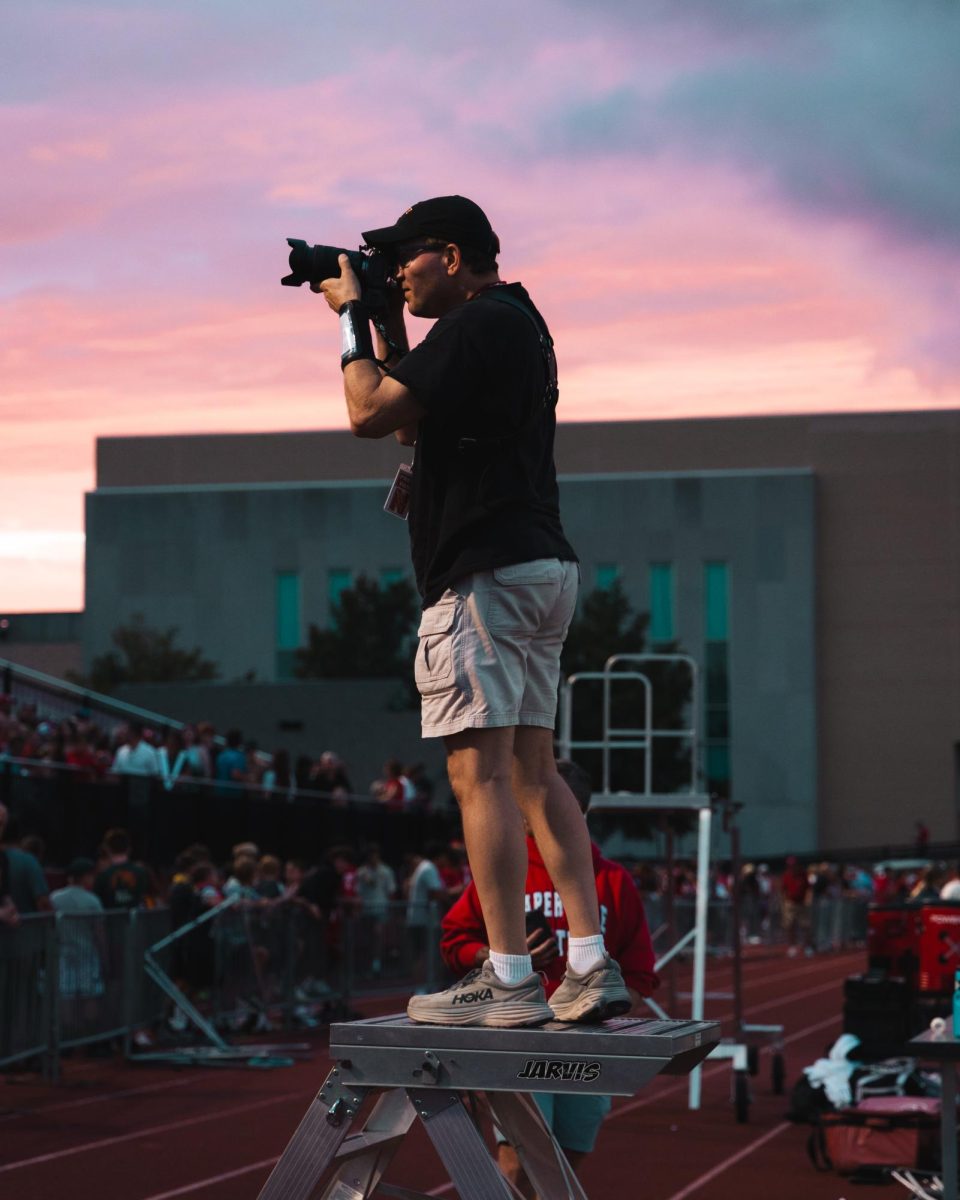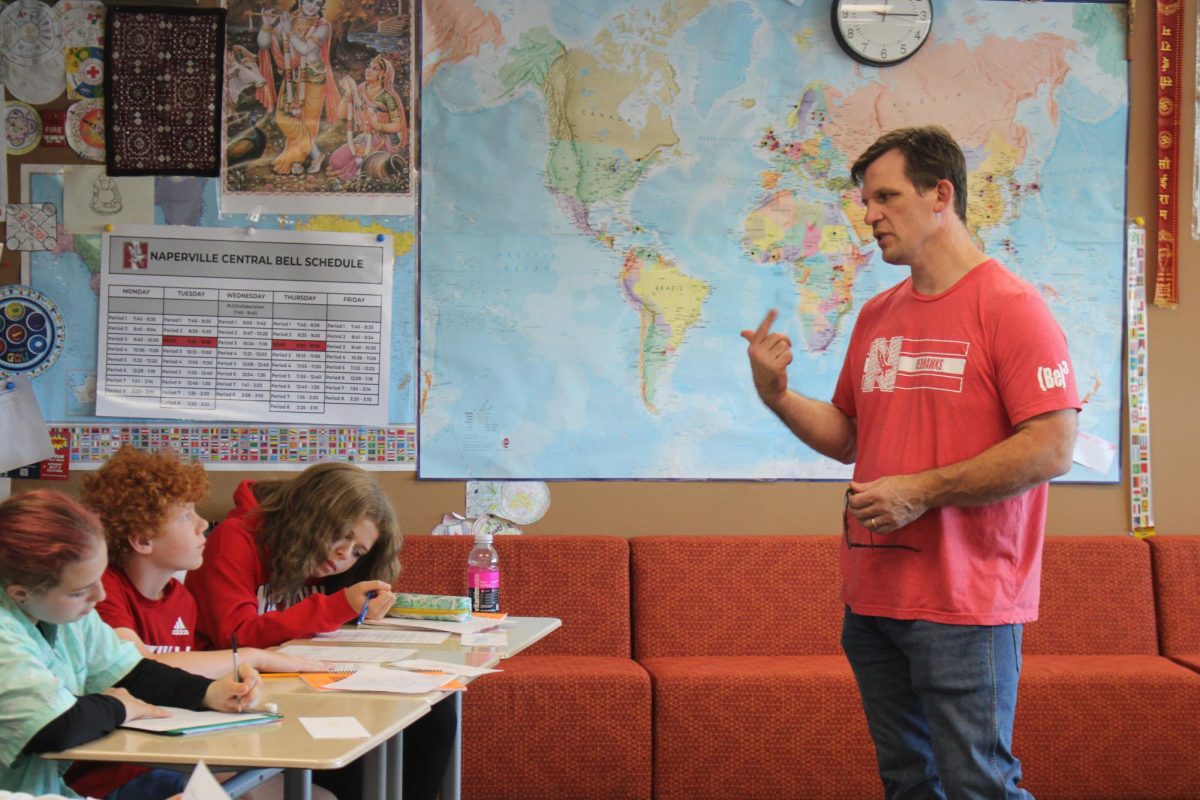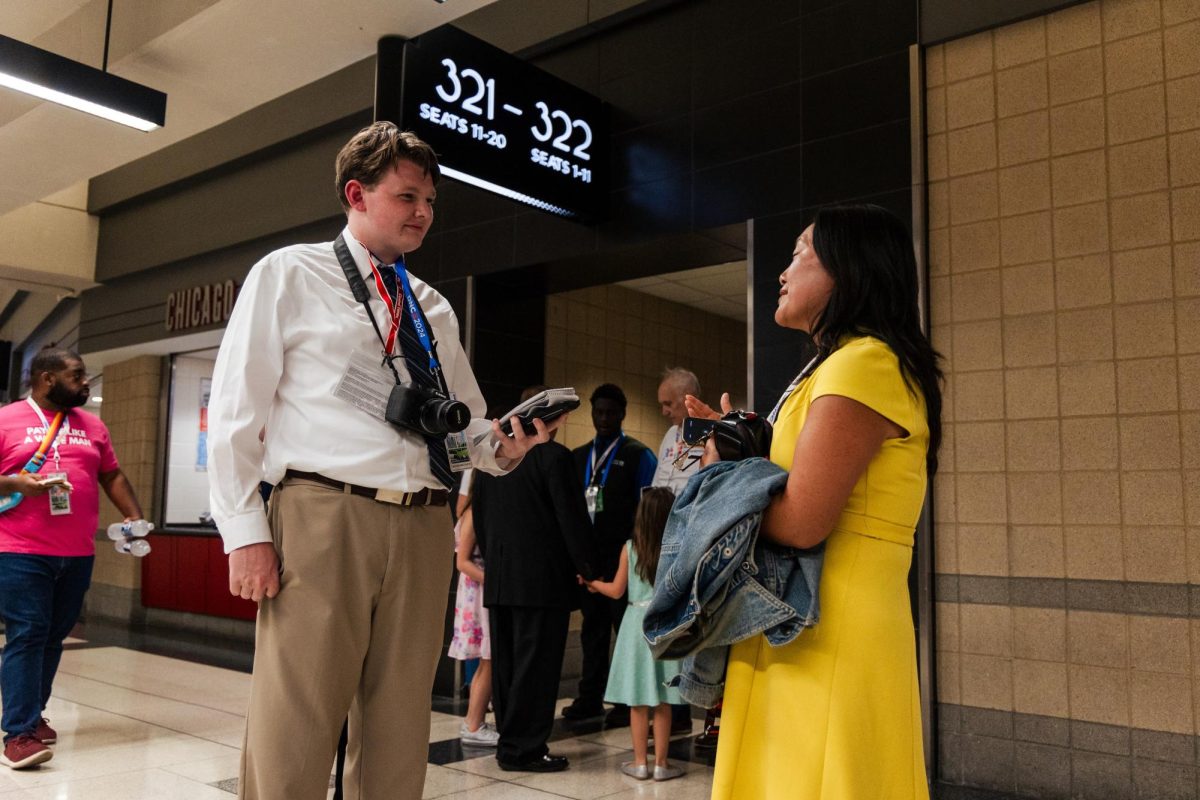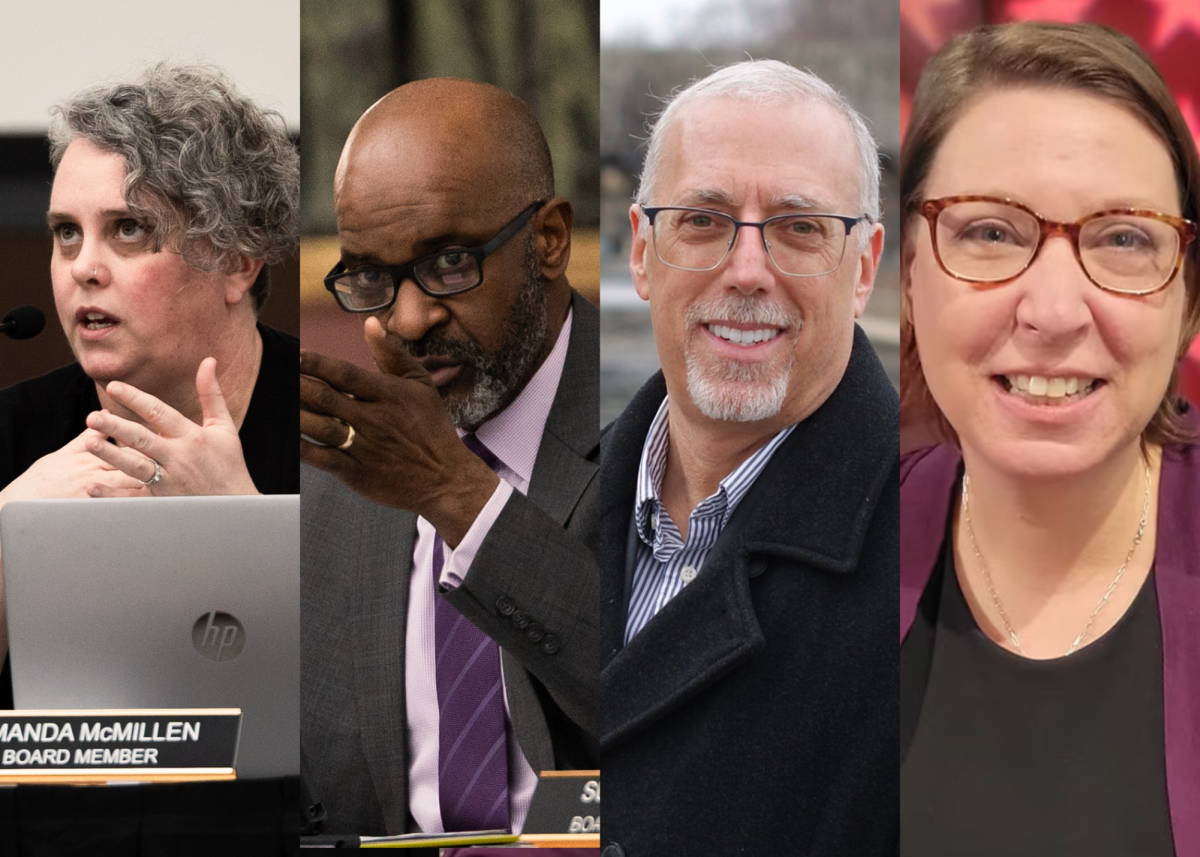Panelists participate in immigration discussion
From left: Moderator H. Ali Yurtsever, North student Denise Rodriguez, Youth Engagaement Manager Celina Villanueva and Senior Resettlement Manager for World Relief DuPage/Aurora Alison Bell discuss their thoughts on immigration. “It isn’t about being pro or against immigration and people coming into this country, it is about humanity and values,” Villanueva said. “It is about saying we have a broken immigration system that when you say ‘okay, well they can go to the back of the line’ — there is no back of the line.”
April 20, 2017
Out of the 23.1 million refugees in the world, fewer than one percent will ever be resettled to another country.
This is one of the many facts that was mentioned by panelists in the second installment of the “Building Inclusive Societies” dialogue series called “Immigrants and Refugees in the U.S.,” started by humanities teacher Letitia Zwickert. The discussion took place on March 22 in the orchestra room at Central.
The panelists included moderator H. Ali Yurtsever, a Muslim faith advisor at Benedictine University; Youth Engagement Manager Celina Villanueva at the Illinois Coalition for Immigrant and Refugee Rights; Alison Bell, Senior Resettlement Manager for World Relief DuPage/ Aurora; Nissa Rhee, founder of 90 Days, 90 Voices; senior Adeel Chaudhary and junior Susan Ortiz from Central and North sophomores Karla Martinez and Denise Rodriguez.
The aim of the discussion was to bring together members of the community to talk about different pressing global issues. The first topic addressed was the difference between a refugee and an immigrant.
An immigrant, defined by Yurtsever, is someone who chooses to resettle to another country, while refugees have been forced to flee their own country in order to save their lives or preserve their freedom. Refugees are people who typically can’t return to their home country because they fear serious harm.
“Refugees can apply for asylum in the United States, a process that could take years and years,” Yurtsever said. “Getting refugee status is not easy. The applicants need to prove that if they were to return to their home country they will be injured because of their race, religion, nationality, social group or their political opinion.”
Historically, the total number of refugees coming to the U.S. has fluctuated along with global events and U.S. priorities. Between 1990 and 1995, about 112,000 refugees arrived in the U.S. each year with many coming from the former Soviet Union. Refugee admissions then dropped to 70,000 in 2002 following the terrorist attacks on Sept. 11, 2001. The U.S. admitted about 85,000 refugees in the fiscal year ending in September 2016, the most in any year during the Obama Administration.
Villanueva commented on the present issue regarding the amount of immigrants and refugees wanting admission into the U.S, as well as illegal immigrants who are already in the country.
“There is no way to dispel or deport 11 million people because it is not just 11 million people,” Villanueva said. “These are entire families and communities that are going to be affected; these are service industries that are going to be affected.”
According to Villanueva, the last immigration reform was passed in 1986, and it legalized about 2.6 million undocumented immigrants who were in the country for years prior.
“We are talking about families, we are talking about humans, we are talking about people,” Villanueva said. “They have lives […] and that is not being taken into consideration, and it needs to be taken into consideration [regarding deportation].”
According to Bell, in order to receive refugee status the first thing one has to do is apply to the United Nations (UN) to prove that one is fleeing from persecution for one of the five reasons stated above.
After one is given refugee status by the UN, it refers the refugees to the U.S. or 27 other countries around the world that accept refugees. This process is a minimum of 18 to 24 months and can take as long as three years. People may be waiting for 15 or 20 years before they actually will be resettled in a country like the U.S.
Bell emphasizes that there is no country that is in the position to take all 23.1 million refugees. She states that there is a role the U.S. and the rest of the world can play in helping to stabilize areas before refugee crises happen, or stabilizing regions once they do happen so people can return home.
All panelists felt that the U.S. should be more accepting of refugees.
The last event in the series called “Making Naperville a More Inclusive Community” will be on April 19 from 4-5 p.m. in the cafeteria. It will be in a workshop format rather than a panel discussion.



